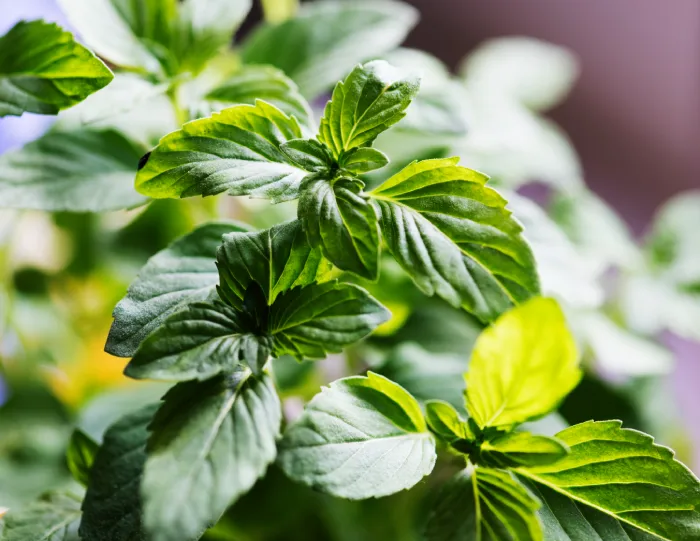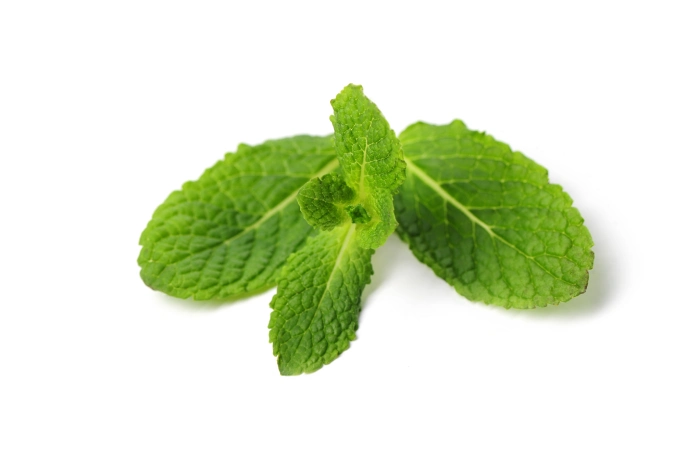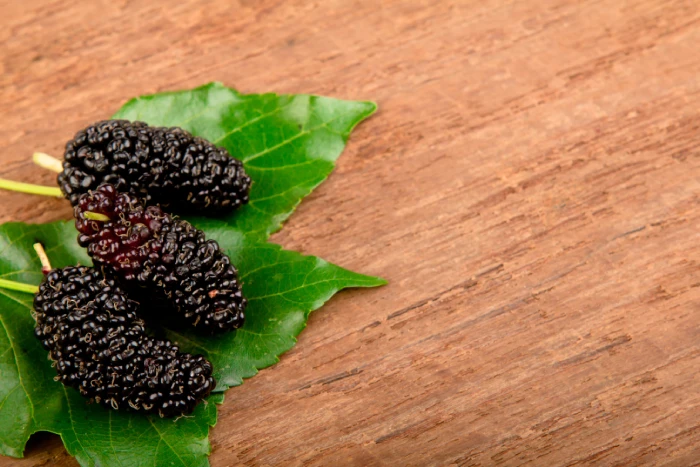Hey wellness enthusiasts! Ready to dive into the wonderfully refreshing world of mentha? As someone who’s been obsessed with natural remedies (and may or may not have turned their backyard into a mini herb garden), I’m beyond excited to spill the tea about this amazing plant family that’s been giving us life since forever!
What Exactly is Mentha? Your New Favorite Plant Friend!
Let’s get real about mentha – it’s not just your grandmother’s garden plant anymore! This versatile herb family has been living rent-free in our gardens and hearts for thousands of years, and for good reason! Whether you’re sipping on some mentha tea or using mentha essential oil to level up your self-care game, this plant is literally everywhere – and we’re not mad about it!
The mentha family is huge, y’all! From the cooling sensation of mentha piperita (that’s peppermint for those who don’t speak plant!) to the sweet vibes of mentha spicata (hello, spearmint!), each variety brings its own unique flavor and benefits to the table. And don’t even get me started on mentha aquatica – this water mint is like the cool cousin who shows up to family gatherings with the best stories!
The History and Cultural Significance of Mentha
Before we dive deeper into the world of mentha varieties, let’s take a moment to appreciate the rich history of this incredible plant family. For thousands of years, cultures around the world have treasured mentha for its refreshing properties and versatile uses. Ancient Egyptians used mentha in their religious ceremonies, while Roman scholars wrote extensively about the cultivation of mentha plants in their gardens.
Traditional medicine systems worldwide have incorporated various mentha species into their healing practices. From Ayurvedic medicine to Traditional Chinese Medicine, mentha has played a crucial role in supporting health and wellness throughout history. The cooling properties of mentha extract have been particularly valued in hot climates, where it provided relief from the heat and supported digestive health.
The Fascinating World of Mentha Varieties
When we dive into mentha varieties, it’s like opening a treasure chest of botanical goodness! Each type has its own personality and superpowers. Take mentha spicata plant, for instance – this isn’t just your regular spearmint. It’s the OG of fresh breath and tummy-soothing properties. And mentha suaveolens? This apple mint variety is serving fresh fruity vibes while still keeping it minty!
Mentha viridis, another name for our friend mentha spicata, is out here proving that sometimes the classics really are the best. The subtle differences between these mentha varieties can make a huge difference in their uses and effects. Some are perfect for culinary applications, while others shine in therapeutic uses or aromatherapy.
Deep Dive into Popular Varieties
The world of mentha is incredibly diverse, with each variety offering its own unique characteristics and benefits. Mentha piperita, commonly known as peppermint, is probably the most well-known member of the family. It’s characterized by high levels of menthol, which gives it that intense cooling sensation we all know and love.
Mentha aquatica, or water mint, thrives in damp conditions and offers a more subtle, refreshing flavor profile. It’s particularly interesting because it can adapt to various growing conditions, making it a versatile choice for home gardeners.

The Science Behind Mentha’s Magic
Understanding what makes mentha so special requires a peek into its chemical composition. The mentha plant family is rich in essential oils, particularly menthol and other compounds that contribute to its characteristic cooling effect and therapeutic properties. When we create mentha extract or mentha essential oil, we’re essentially concentrating these beneficial compounds.
Therapeutic Compounds and Their Effects
The active compounds in mentha work together in fascinating ways. For example, the menthol in mentha piperita doesn’t just create a cooling sensation – it actually triggers cold receptors in our skin and mucous membranes. This is why mentha essential oil can feel cooling even at room temperature.
Growing Your Own Mentha Garden
Let me share my personal journey with growing mentha plants – it’s been quite the adventure! Starting with mentha piperita seeds might seem daunting, but these plants are surprisingly forgiving for beginner gardeners. The key is understanding their growing habits and providing the right conditions for them to thrive.
Understanding Growth Patterns
Mentha plants have a reputation for being vigorous growers – and trust me, that’s an understatement! Their spreading habit means they can quickly take over a garden bed if not properly managed. However, this same characteristic makes them excellent candidates for container gardening or dedicated herb beds.
Optimal Growing Conditions
Different mentha varieties have slightly different preferences, but most enjoy:
- Rich, well-draining soil
- Regular watering
- Partial to full sun exposure
- Space to spread their roots
One particularly interesting aspect of growing mentha is its ability to cross-pollinate with other varieties. This can lead to unique hybrid plants with their own special characteristics.
The Power of Mentha Essential Oil and Extract
Y’all, let’s talk about mentha essential oil and mentha extract because this stuff is literally magic in a bottle! Learning how to make mentha oil at home might seem intimidating, but trust me, it’s easier than making those TikTok recipes everyone’s obsessed with!
Extraction Methods and Quality Factors
The process of creating mentha extract or essential oil is absolutely fascinating, and let me tell you, it’s like being part science experiment, part ancient alchemy! The method used to extract these precious compounds can make a huge difference in the final product’s quality and properties. Let’s break down these amazing extraction processes that turn simple mentha plants into concentrated magic!
Steam distillation is the OG method for extracting mentha essential oil, and it’s still considered the gold standard today. Think of it as giving your mentha plants a luxury spa steam treatment! The process involves passing hot steam through fresh mentha leaves, which causes the tiny oil glands to burst and release their precious contents. The steam, now carrying all those amazing mentha compounds, cools down and condenses back into water. Since oil and water don’t mix (remember that from science class?), the mentha essential oil naturally separates and floats to the top, where it can be easily collected. This method is particularly awesome because it preserves the delicate compounds that give mentha its characteristic cooling effect and therapeutic properties.
Cold pressing is another fascinating method, especially useful for creating certain types of mentha extract. Unlike steam distillation, this method is all about pressure, not heat. It’s like giving your mentha plants a really intense massage! The plant material is mechanically pressed to squeeze out the beneficial compounds. This method is great for preserving heat-sensitive components and often results in an extract that’s super close to what you’d find in the fresh plant.
For those wanting to know how to make mentha oil at home, there’s also the traditional infusion method. This involves steeping mentha leaves in a carrier oil (like olive or jojoba oil) over several weeks. While this won’t give you a pure essential oil, it creates a lovely aromatic oil that’s perfect for home use.
The science gets even cooler with modern solvent extraction methods! These techniques use specific solvents to pull out different compounds from the mentha plant. It’s like having a matchmaker who knows exactly how to pair up the right solvent with the compounds we want to extract. Supercritical CO2 extraction is particularly exciting – it uses pressurized carbon dioxide to act as a solvent, leaving no chemical residues behind. The result? A super pure mentha extract that maintains all the good stuff we want while leaving behind anything we don’t.
Each extraction method has its own sweet spot in terms of what compounds it’s best at preserving. For example, steam distillation is amazing for capturing the volatile aromatic compounds that give mentha essential oil its distinctive scent and cooling properties. Solvent extraction might be better for getting some of the water-soluble compounds that aren’t captured in the essential oil. It’s like having different Instagram filters – each one brings out different aspects of the same picture!
Applications in Aromatherapy
The use of mentha essential oil in aromatherapy has gained significant popularity in recent years. Its refreshing scent can help:
- Clear mental fog
- Enhance focus and concentration
- Create an energizing atmosphere
- Support respiratory comfort
Modern Innovations and Products

The beauty and wellness industries have embraced mentha in exciting new ways. From mentha lip gloss to sophisticated skincare formulations, innovative products are constantly being developed to harness the power of this amazing plant family.
Beauty and Personal Care
The cooling properties of mentha make it a popular ingredient in:
- Facial cleansers and toners
- Body lotions and creams
- Hair care products
- Oral care formulations
Culinary Applications
Beyond traditional uses, creative chefs and food innovators are finding new ways to incorporate mentha into their creations. From high-end restaurants to home kitchens, mentha is being used in:
- Innovative cocktails and mocktails
- Fusion cuisine
- Desserts and confections
- Functional beverages
Scientific Research and Modern Discoveries
The scientific community’s interest in mentha has exploded in recent years, with researchers uncovering new benefits and applications almost daily. Recent studies on mentha extract have revealed fascinating insights into its potential therapeutic applications. From supporting digestive health to enhancing cognitive function, the research is showing us that our ancestors were onto something big when they treasured these plants!
One particularly exciting area of research involves the interaction between mentha compounds and our body’s natural systems. Scientists have discovered that certain compounds in mentha essential oil can interact with our nervous system in ways that might help support both physical and mental well-being. It’s like mentha speaks our body’s language!
Therapeutic Applications in Modern Medicine
The medical community has been taking a fresh look at how mentha can support health and wellness. While mentha has been used in traditional medicine for centuries, modern research is helping us understand exactly how and why it works. From digestive support to respiratory health, mentha’s therapeutic applications are vast and varied.
The mentha plant family has shown particular promise in areas like:
- Digestive health support through natural compounds
- Respiratory comfort through aromatic properties
- Mental clarity and focus enhancement
- Natural cooling and soothing effects
Safety Considerations and Usage Guidelines
While mentha is generally super safe, it’s important to know how to use it properly. Whether you’re working with mentha extract or mentha essential oil, understanding proper dosage and application methods is key to having the best experience. Just like anything powerful enough to help you, it needs to be respected!
Some people might be more sensitive to mentha than others, and that’s totally normal! When trying any new mentha product, whether it’s a mentha lip gloss or a mentha extract supplement, start slow and see how your body responds. It’s like introducing yourself to a new friend – you want to take it step by step!
Commercial Production and Quality Standards
The commercial production of mentha products is a fascinating world of its own. From large-scale mentha plants cultivation to sophisticated extraction methods, ensuring quality while meeting growing demand is a complex challenge. Modern producers are using advanced techniques to create high-quality mentha essential oil and mentha extract while maintaining sustainability.
The quality of mentha products can vary significantly based on factors like:
- Growing conditions and farming practices
- Extraction methods and processing techniques
- Storage and handling procedures
- Quality control standards

Traditional Medicine Systems and Modern Integration
It’s amazing to see how different traditional medicine systems have used mentha throughout history. From Ayurveda to Traditional Chinese Medicine, mentha varieties have played important roles in supporting health and wellness. Modern practitioners are finding exciting ways to integrate these traditional uses with contemporary healthcare approaches.
The wisdom of traditional mentha uses is being validated by modern science, creating a beautiful bridge between ancient knowledge and contemporary understanding. Whether you’re using mentha extract in a modern supplement or preparing it in traditional ways, you’re tapping into centuries of healing wisdom.
Future Trends and Innovations
The future of mentha looks brighter than ever! Innovation in the mentha world is happening at lightning speed, with new products and applications being developed constantly. From advanced extraction techniques to novel delivery systems, the possibilities seem endless.
Some exciting trends to watch include:
- New mentha-based wellness products
- Innovative cultivation techniques
- Advanced processing methods
DIY Projects and Home Uses
Want to get creative with mentha at home? There are so many fun projects you can try! From making your own mentha oil to creating custom beauty products, the possibilities are endless. Here’s a simple guide on how to make mentha oil that anyone can try at home!
First, you’ll need to gather your supplies:
- Fresh mentha leaves
- A carrier oil of your choice
- Clean glass jars
- Straining materials
Final Thoughts: The Endless Potential of Mentha
As we wrap up our deep dive into the world of mentha, one thing is clear – this amazing plant family has so much to offer! Whether you’re growing your own mentha plants, experimenting with mentha extract, or simply enjoying a cup of refreshing mentha tea, you’re part of a tradition that spans thousands of years and continues to evolve.
Remember, your journey with mentha is personal. Whether you’re drawn to the cooling sensation of mentha piperita, the sweet notes of mentha spicata, or the unique character of mentha aquatica, there’s a perfect mentha match out there for everyone. Keep exploring, stay curious, and don’t be afraid to experiment with different varieties and forms of this amazing plant!
Disclaimer: While mentha is generally considered safe, always consult with healthcare professionals before starting any new supplement regimen, especially if you have existing health conditions or are taking medications. Some people may be sensitive to mentha products, so start with small amounts and observe your body’s response.



